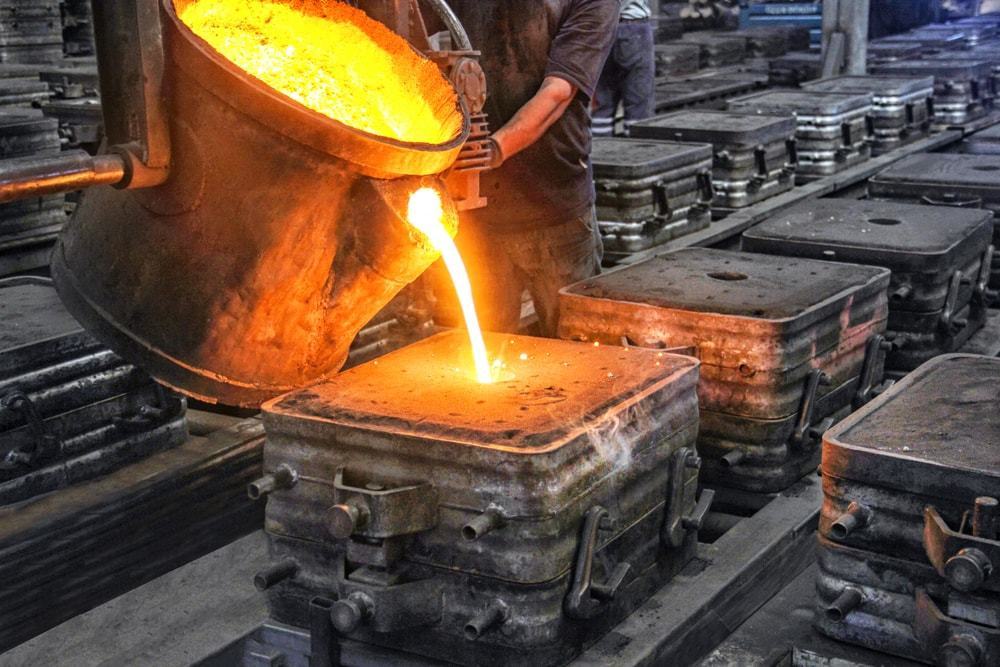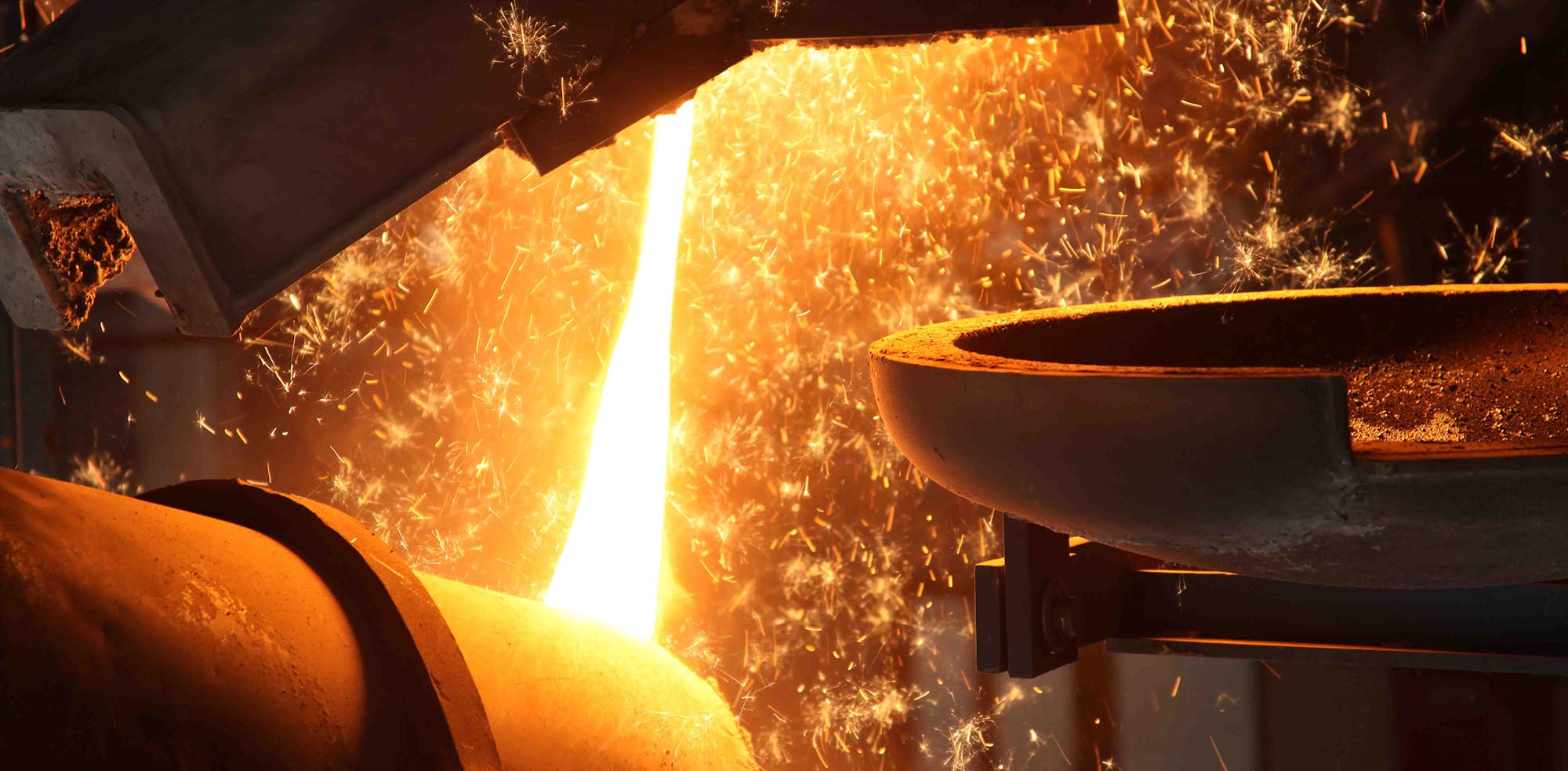Exactly How a Metal Foundry Adds To Lasting Metal Manufacturing Practices
Metal foundries play an essential role in promoting sustainability within the metal production industry. By integrating recycled products, they lower reliance on virgin resources and lessen ecological influences. Energy-efficient melting procedures better decrease power usage and discharges. Nonetheless, the trip toward sustainable practices entails greater than simply recycling and energy management. It includes a wider commitment to ethical sourcing and innovative modern technologies. The ramifications of these techniques are substantial and warrant better assessment.
The Role of Recycling in Metal Foundries
While metal production has actually generally relied upon virgin materials, the increasing focus on sustainability has actually resulted in a significant change in methods, particularly in metal foundries. Recycling has actually become a crucial element of this improvement, allowing foundries to repurpose scrap metal and decrease reliance on extracted sources. By integrating recycled products into their procedures, foundries not only lower environmental influence yet also reduced production costs.
Using recycled metals, such as copper, steel, and aluminum, reduces energy usage and decreases greenhouse gas emissions related to traditional mining and refining techniques. Furthermore, foundries can accomplish top quality results by utilizing advanced sorting and handling technologies to ensure the pureness of recycled materials. This emphasis on recycling fosters a round economy, where waste is lessened, and resources are utilized efficiently. Metal foundries play a crucial function in advertising lasting practices within the metal manufacturing sector.
Energy-Efficient Melting Strategies
Energy-efficient melting strategies are necessary for enhancing sustainability in metal manufacturing. These methods substantially decrease energy usage during the melting procedure, which is one of the most energy-intensive stages in metal manufacturing. Technologies such as induction melting, resistance heating, and microwave melting offer enhanced effectiveness compared to standard techniques. Induction melting, for example, uses electromagnetic fields to create heat straight within the metal, minimizing power loss and giving specific temperature level control.
In addition, applying warmth recuperation systems can additionally improve effectiveness by reusing and capturing waste heat produced throughout melting. Employing sophisticated insulation products and enhancing heating system designs likewise contribute to power financial savings. By adopting these innovative melting techniques, metal foundries can reduce their carbon impact, lower operational prices, and add to an extra sustainable manufacturing landscape. The combination of energy-efficient practices not only aligns with ecological goals but additionally satisfies the growing need for accountable manufacturing methods in the metal sector.
Sustainable Sourcing of Raw Products
Lasting sourcing of raw materials is essential for minimizing the ecological effect of metal manufacturing. This includes the increased use of recycled metals, the fostering of ethical mining methods, and initiatives focused on local sourcing. By focusing on these techniques, the industry can advertise responsible source management and support neighborhood economic climates.

Recycled Metal Usage
Just how can markets effectively minimize their environmental effect while satisfying the expanding need for metal? One significant technique is the application of recycled metal. By incorporating scrap metal into their manufacturing procedures, foundries can lower the extraction of virgin products, therefore reducing and saving natural resources energy usage. Recycled metals call for much less energy to procedure contrasted to their raw counterparts, causing reduced greenhouse gas emissions. In addition, using recycled metal assists divert waste from garbage dumps, promoting a circular economic climate. Industries that focus on recycled metal not just add to sustainability yet also benefit from cost savings associated with decreased material procurement. Consequently, recycled metal usage stands as an important technique for ecologically accountable metal production.
Honest Mining Practices
While the demand for steels remains to climb, markets are progressively recognizing the importance of moral mining methods in making sure responsible sourcing of resources. Honest mining encompasses a commitment to ecological stewardship, social obligation, and adherence to fair labor practices. Firms are currently prioritizing collaborations with mines that show transparency in their operations, minimizing ecological impact and respecting neighborhood neighborhoods. This method not only cultivates a lasting supply chain but additionally improves the credibility of businesses entailed. By carrying out rigorous criteria and accreditations, sectors can fight illegal mining tasks and promote the well-being of workers. Eventually, ethical mining methods contribute considerably to an extra lasting metal manufacturing environment, aligning financial development with social and ecological stability.
Local Sourcing Campaigns

Advancements in Metal Casting Processes
Developments in metal casting processes are transforming the industry by including innovative recycling methods that reduce waste. Energy-efficient melting methods are also being established to minimize power usage during manufacturing. Furthermore, using cutting-edge mold and mildew materials contributes to boosted performance and sustainability in casting operations.
Advanced Recycling Techniques
Advanced recycling strategies are transforming metal casting processes, greatly boosting sustainability in the industry. These technologies concentrate on redeeming and reprocessing scrap metal, significantly reducing waste and the demand for virgin materials. Methods such as hydrometallurgy and pyrometallurgy enable foundries to draw out beneficial metals from made use of components, making sure reliable resource use. Additionally, advanced sorting and filtration technologies enhance the quality of recycled steels, making them appropriate for high-performance applications. This not only lessens the environmental footprint of metal manufacturing however likewise promotes a circular economic climate by promoting the reuse of products. As these recycling techniques proceed to progress, they assure to further enhance procedures within foundries and contribute to a much more lasting metal manufacturing landscape.
Energy-Efficient Melting Techniques
While standard melting methods have long been the backbone of metal casting, recent improvements have actually introduced energy-efficient techniques that significantly lower energy usage and exhausts. Technologies such as induction melting and electrical arc furnaces have actually obtained prominence, allowing for exact control over temperature level and reducing the need for fossil gas. These approaches not just boost energy performance but also promote much faster melting times, which converts to decrease functional expenses. Furthermore, advancements in warm healing systems allow foundries to catch and reuse excess heat created throughout the melting procedure. This alternative method to energy monitoring not just sustains sustainable practices but additionally placements metal foundries as leaders in the shift towards greener production procedures, even more aligning with international sustainability goals.
Ingenious Mold Materials
As the demand for even more effective and sustainable metal casting processes grows, the expedition of cutting-edge mold products has come to be a prime focus in the industry. Typical mold materials frequently add to ecological obstacles, prompting the search for options that decrease waste and energy intake. Current developments include the development of recyclable compounds and eco-friendly binders, which not just enhance mold and mildew efficiency but additionally decrease environmental impact. In addition, using 3D printing modern technology in mold and mildew creation permits for complex designs that lower material use and make it possible for fast prototyping. These ingenious materials not only improve casting precision but additionally align with sustainability objectives, showcasing the industry's dedication to decreasing its carbon impact while maintaining high-quality production criteria.
Reducing Waste With Advanced Modern Technology
Ingenious innovations are changing the metal manufacturing market by considerably lowering waste and enhancing effectiveness. Advanced data analytics and device knowing algorithms enable foundries to optimize production procedures, recognizing inadequacies and decreasing scrap product. Smart sensors check equipment performance in real-time, enabling anticipating maintenance that minimizes downtime and waste generation. In addition, additive production strategies, such as 3D printing, permit for the production of facility components with marginal product usage, markedly lowering waste contrasted to typical approaches.
In addition, closed-loop systems are coming to be extra widespread, where scrap metal and by-products are reused back right into the manufacturing cycle, ensuring that materials are utilized to their fullest potential - Aluminum Foundry. This assimilation of innovation not only advertises resource preservation however also boosts the general sustainability of metal production techniques. By accepting these improvements, foundries can add to a more lasting future while keeping competitiveness in the marketplace
The Effect of Foundries on Carbon Impact Reduction
Foundries play a necessary function in lowering the carbon impact of the metal production sector by carrying out Aluminum Foundry numerous lasting practices. By using energy-efficient modern technologies, such as electric arc furnaces, these facilities significantly lower greenhouse gas discharges compared to traditional methods. Additionally, foundries significantly take on renewable resource sources, which also decreases their reliance on fossil gas.
Reusing scrap metal is one more essential practice that foundries employ, saving resources and reducing the need for virgin materials. This not only reduces waste however likewise reduces the energy-intensive removal processes connected with mining. Moreover, the fostering of closed-loop water supply assists to reduce water use and decrease wastewater discharge, adding to a more sustainable procedure.
Via these initiatives, foundries show their commitment to environmental stewardship, leading to a marked reduction in the general carbon impact of the metal manufacturing market. Their recurring initiatives are crucial in the change towards a more lasting commercial landscape.
Often Asked Concerns
What Sorts of Metals Are The Majority Of Generally Recycled in Foundries?
Light weight aluminum, brass, copper, and steel are amongst one of the most generally recycled steels in foundries. These steels are favored as a result of their high recycling rates, financial value, and prevalent schedule, contributing greatly to commercial sustainability efforts.
Just How Do Foundries Make Certain the High Quality of Recycled Materials?
Foundries identify the quality of recycled products with rigorous testing, arranging, and filtration procedures. They execute advanced modern technologies to assess structure and remove impurities, guaranteeing that the recycled metals fulfill market standards for efficiency and safety and security.
What Accreditations Exist for Lasting Foundry Practices?
Numerous accreditations exist for sustainable foundry techniques, including ISO 14001 for environmental monitoring, ISO 50001 for power management, and LEED accreditation for lasting building techniques (Aluminum Foundry). These qualifications assist assure adherence to environmental and sustainability standards in operations
How Do Foundries Determine Their Carbon Footprint Decrease?
Foundries measure carbon impact decrease with tools like lifecycle evaluations, energy audits, and discharges tracking systems. They compare baseline discharges to existing outcomes, reviewing enhancements in power efficiency, product usage, and renewable resource adoption gradually.
What Are the Economic Benefits of Sustainable Metal Manufacturing?
Lasting metal manufacturing supplies financial advantages such as lowered operational costs, increased effectiveness, improved market competition, and potential government incentives. Additionally, it fosters development and draws in ecologically mindful consumers, ultimately driving long-term profitability for services.
Metal foundries play an important role in promoting sustainability within the metal production industry. While metal manufacturing has actually generally depended on virgin materials, the enhancing emphasis on sustainability has led to a substantial shift in practices, specifically in metal foundries. By including scrap metal right into their production procedures, foundries can decrease the extraction of virgin products, thereby preserving natural resources and minimizing energy intake. Foundries play an important function in lowering the carbon impact of the metal manufacturing sector by implementing numerous sustainable techniques. Recycling scrap metal is one more critical practice that foundries employ, preserving resources and decreasing the requirement for virgin materials.